In regions marked by fragility, conflict, and vulnerability (FVC), traditional evaluation methods often fall short in capturing the nuanced dynamics and complexities at play. This session delves into the unique challenges and opportunities of evaluating environmental programs and interventions in such contexts, offering insights and strategies for practitioners, researchers, and…
Moderator(s)
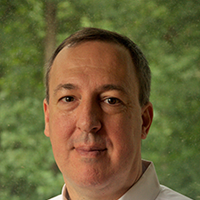
Carl Bruch’s research focuses on making environmental law work. He has helped countries across Africa, Latin America, the Middle East, and Asia develop and implement laws, policies, and institutional frameworks to effectively manage water resources, biodiversity, forests, and other natural resources. He is an authority on the means to manage natural resources to support post-conflict peacebuilding, on environmental governance and institutions, and on ways to prevent, reduce, mitigate, and compensate for damage to the environment during armed conflict.
In addition to working at ELI, Bruch has been an attorney with the United Nations Environment Program (UNEP) and the Environmental Law Alliance Worldwide (E-LAW). He is an adjunct professor with American University School of International Service, where he teaches a master’s-level course on environmental peacebuilding.
Presenter(s)
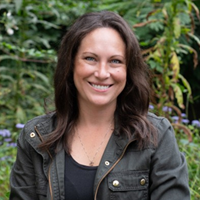
Amanda works with organizations to develop conflict-sensitive monitoring, evaluation, and learning (MEL) frameworks, particularly for projects and programs in the areas of environmental peacebuilding and climate. She is also an artist and photographer. Amanda has a PhD in International Conflict Management and a MA in Anthropology. She is currently a consultant with Universalia‘s Environment Security and Conflict Transformation (EnSeCT) practice and a Visiting Professor at Emory University in the Masters of Development Practice Program, where she teaches monitoring and evaluation to graduate students.
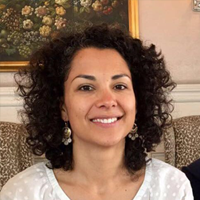
Ana is an Economist for the Strategic Programme to Reduce Rural Poverty at FAO. She has extensive experience in rural development, social protection, gender and women’s empowerment issues. She has contributed to several initiatives in FAO, including the From Production to Protection project. She oversees FAO’s work on policies and strategies for rural poverty reduction and analytical work on rural poverty and livelihoods.
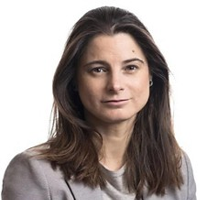
Lauren Kelly oversees the thematic evaluations for the Sustainable Development and Infrastructure Global Practices of the World Bank. With over twenty years of international evaluation experience, Ms. Kelly has led multiple influential evaluations and managed several Board level engagements that have deepened development impact and contributed to evidence based decision and policy making within the World Bank Group. She is currently leading IEG’s evaluations of the World Bank’s Engagement in Situations of Conflict and the Natural Resource Degradation and Human Vulnerability Nexus. With a background in conflict management, she has also made significant contributions in the field of natural resources, land use, and conflict and has worked extensively on pastoral and farmer relations in Africa.
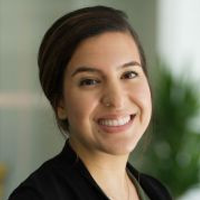
Shaadee Ahmadnia is an Environment and Fragility, Conflict, and Violence Specialist consulting with the Environment, Natural Resources, & Blue Economy Global Practice at the World Bank. She is the lead author of the report, Defueling Conflict: Environment and Natural Resources as a Pathway to Peace, which provides the critical rationale for the World Bank’s engagement and investment in environment and natural resource management in fragile, conflict, and violence-affected situations. Prior to developing strategies and insights for conflict-sensitive approaches to natural resource management and climate resilience projects at the World Bank, she supported the implementation of the environment portfolio in Latin America and the Caribbean to advance equitable, effective REDD+ mechanisms and projects that conserve and restore critical landscapes. She holds a master’s degree from the Yale School of Environment and has extensive experience assessing the resilience and social dimensions of climate adaptation and mitigation initiatives in Latin America, the Middle East, and South Asia.

Tracy Hart is a Senior Environmental Specialist with the World Bank's Environment and Natural Resources Global Practice. Previously, she was a Senior Environmental Specialist with the Bank's Middle East and North Africa (MENA) Region. Prior to this position, Tracy worked in the Environment Anchor for the Bank’s Sustainable Development Department and for the Water Resource Management Group for Central and Western Africa in the Bank's Water and Urban Unit. Tracy's fifteen years of work in the World Bank has been at the nexus of water and the environment, including wastewater treatment reuse, water quality management, groundwater injection and recharge, wetlands conservation and rehabilitation, integrated ecosystem management based on hydrological systems, and environmental impact assessment, including EIA quality assurance and risk management. Tracy holds a Masters and PhD in Agricultural and Resource Economics, with a specialization in Water Resource Economics, from the University of California at Berkeley, and a Bachelors of Science in Foreign Service from Georgetown University. She worked as a trade economist for the U.S. Department of Agriculture Economic Research Service and served as a U.S. Peace Corps Volunteer in Mauritania.
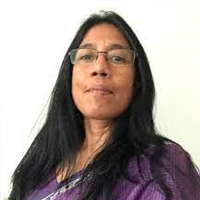
Vijayalakshmi Vadivelu is the Chief, Corporate and Thematic Evaluations at the Independent Evaluation Office of the United Nations Development Programme (UNDP). She has over twenty-five years of experience in international development policy, evaluation, and applied research. She has managed, and lead evaluations of development and crisis-related programmes at the global and country levels. Prior to joining UNDP, she was a researcher working on governance issues and gender equality in development at the Institute for Social and Economic Change, Bangalore, India. She was a Visiting Professor at the Division of Global Affairs, Rutgers University. She holds a PhD in Sociology.




